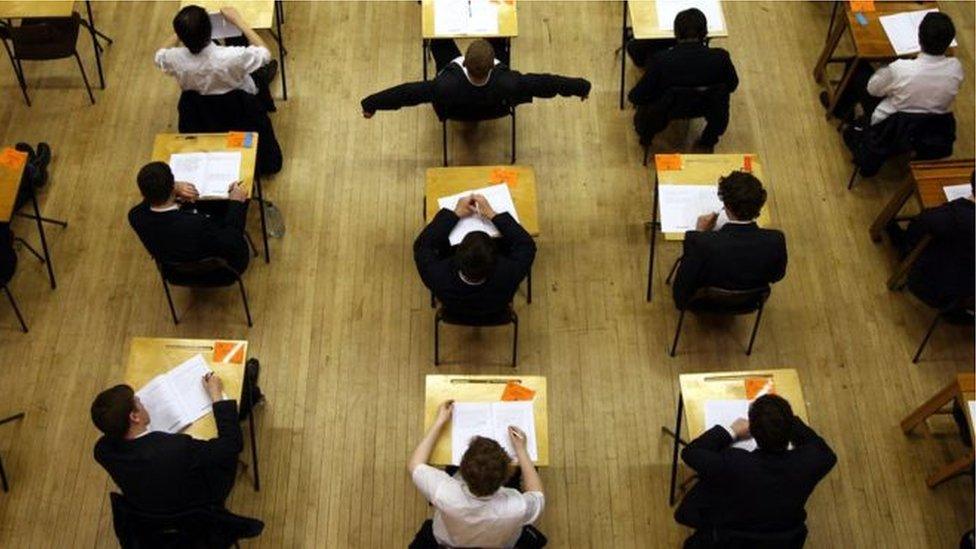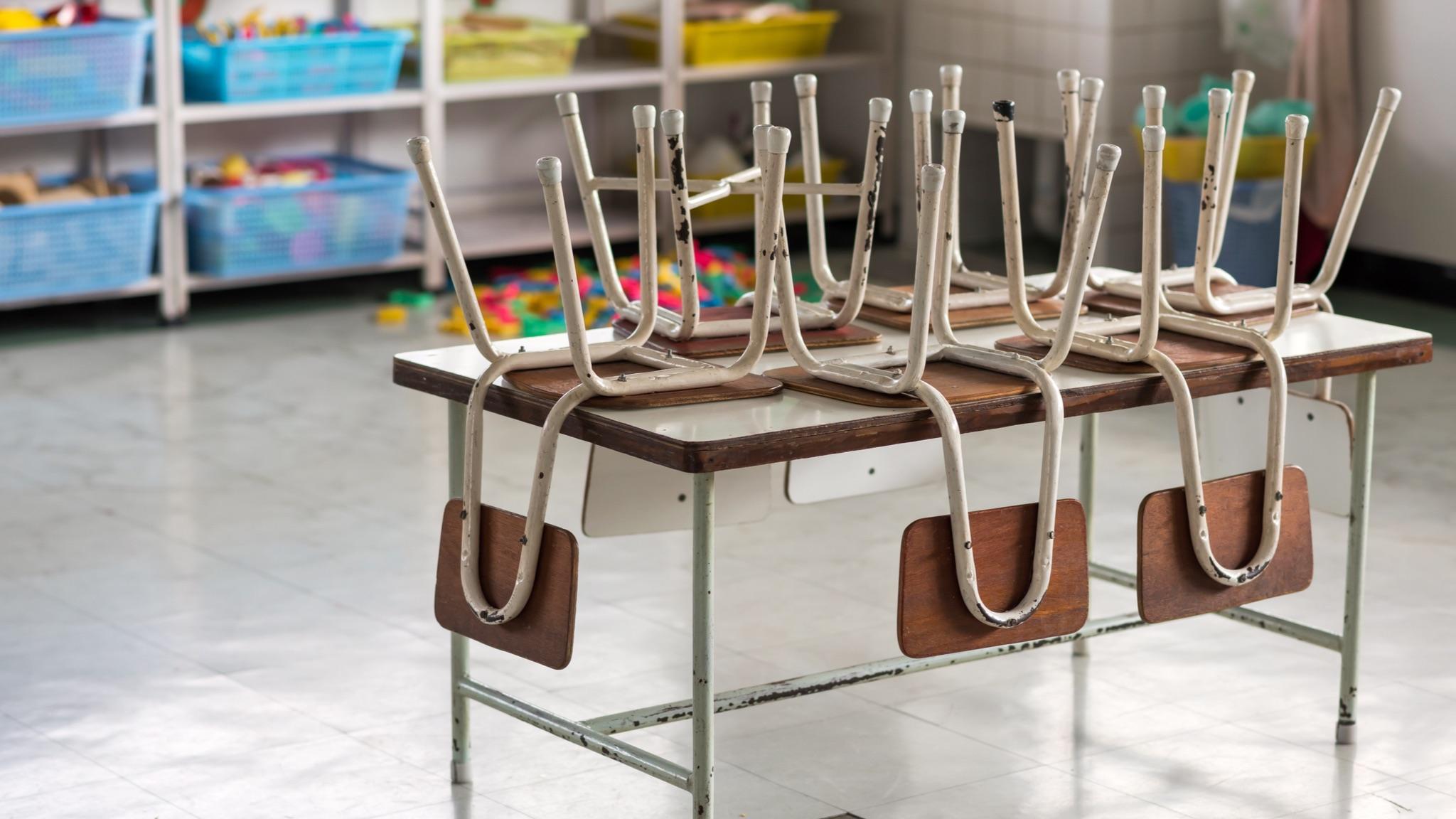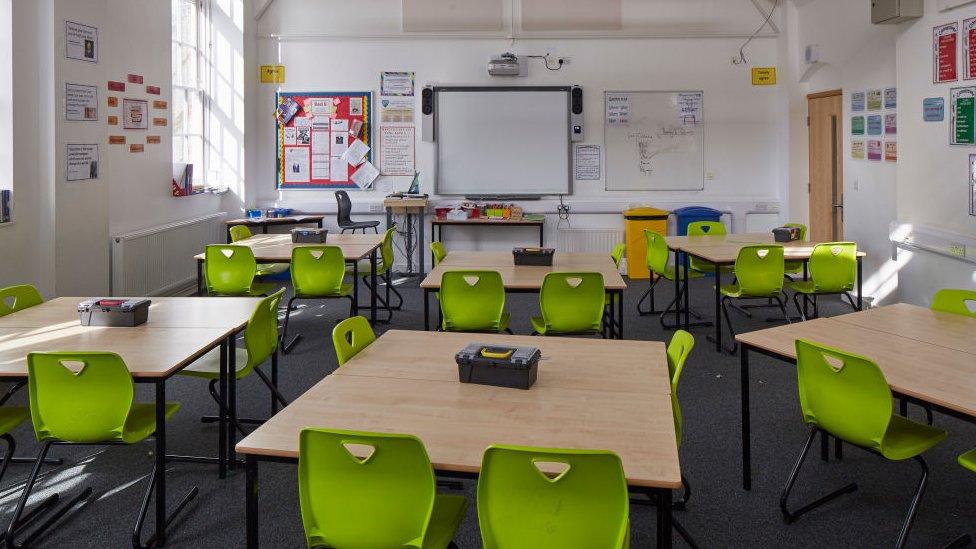Coronavirus: Main NI exam body defends predicted grades
- Published
- comments

Teachers are being asked to predict grades due to the coronavirus pandemic
Northern Ireland's main exam body has defended its process for determining grades for A-level students who were due to sit exams this year.
Concerns have been raised about exactly how the grades will be calculated.
The Council for the Curriculum Examinations and Assessment (CCEA) said it appreciates that this has "required substantial input" from teachers.
It said teachers have a "good understanding" of their students and how they compare with others.
Teachers have been asked to predict grades due to the coronavirus pandemic, which has prevented students from sitting exams.
They have been asked to rank their students in each subject to help CCEA determine the grades.
The exam board told BBC News NI it believes "this approach is in the best interests of students".
'A hefty, difficult exercise'
One post primary school teacher told BBC Radio Ulster's Good Morning Ulster programme that she believes the system for predicting grades - which also looks at each school's performance during the previous two years - favours grammar schools.
"It's quite a hefty, difficult exercise. We are then bound by the numbers who get As, Bs, Cs, by the performance of the school in the previous two years," she said.
"You're then comparing the students who sat the exams last year with the students who sit the exam this year.
"I find that highly restrictive and really unfair."

One teacher said it would be a "hefty, difficult" process that would favour grammar schools
'Cohort variation'
The Association of School and College Leaders has also called for CCEA to take account of "cohort variation".
Trevor Robinson is the president of its Northern Ireland executive committee.
He said there has been an improvement in student attainment in some schools this year and there is a risk of a "real injustice" if this is not taken into consideration.
Mr Robinson, who is also the principal of Lurgan College, raised concerns at Stormont's education committee on Wednesday.
"What guarantees can be provided to ensure that no individual candidate, who is fairly assessed by his or her centre, will not be disadvantaged by being awarded the grade which he or she deserves and is reflective of his or her ability, by any statistical adjustment to bring results in line with the previous cohorts?" he said.
"We have no understanding. We have been given no information yet in relation to this mathematical model.
"It is important that we know what that model would look like to avoid the impression of some form of dark arts being performed."
The online portal for submitting grades opened on 25 May and all A-level and AS predicted grades must be submitted by Friday.
CCEA said more than 80% of A-level grades have been returned to date.
It said it had provided guidance to schools and colleges on what evidence can be used and how students should be ranked in order to determine the grades.
It said those predictions "must reflect a fair, reasonable and carefully considered judgement of the most likely grade a student would have achieved if they had sat their exams this summer and completed any coursework, controlled assessment or other assessments required by the qualification".
'A significant task for schools'
Universities will then use this information to decide which students they will take.
A spokesperson for CCEA said the exam body recognised the process "is a significant task" for schools.
It added: "We have supported schools and colleges, by answering thousands of enquiries and to date we are pleased with the support we have received for this work.
"Teachers and heads of department will have a good understanding of their students' performance and how they compare to other students within the subject for this and previous years.
"We believe that this approach is in the best interests of students."
- Published16 April 2020

- Published19 April 2020
